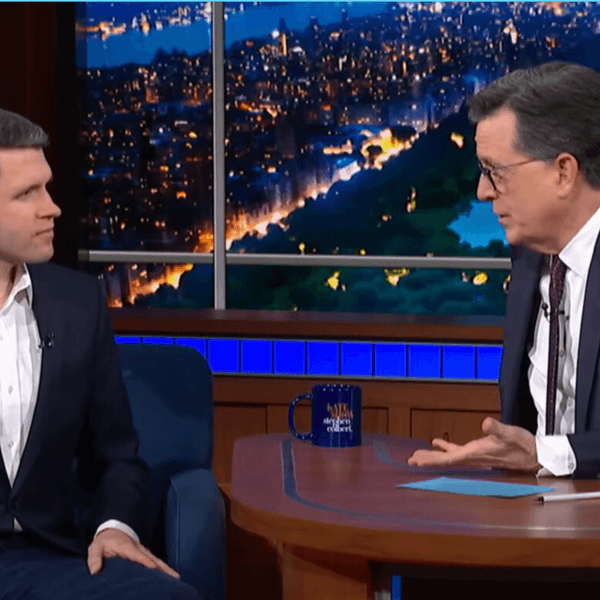
We’re hearing a lot these days about how to unravel the mysteries of the foods we eat and why this matters.
Farmers markets are sprouting like weeds in cities around the country. First lady Michelle Obama has become America’s first gardener, too, touting tomatoes tended in White House soil and promoting a new book about healthy eating. Just last week, I visited a food bank in Columbus, Ohio, that, with the help of high-school students, will harvest its own crop of organic vegetables.
If we know where our food comes from, the theory goes, we’ll have greater respect for the people who grow and raise it. We’re also likelier to care more about what we’re shoveling into our bodies whenever we lift fork to mouth.
I wish we had this same growing awareness about manufacturing. Most of us have no idea what goes into making the things we take for granted in this country. Everything we use comes from somewhere and is made by somebody. If we knew more about the process and the men and women behind it, we’d be less likely to fall for partisan attempts to dehumanize Americans who still work with their hands.
My father was a utility worker at the Cleveland Electric Illuminating Co. He made electricity. My mother loved pointing that out whenever she saw us switch on a light or turn on the TV.
“You can thank your dad for that,” she’d say, her face beaming with pride.
Never mind that Dad was one of hundreds wearing their bodies out in the bowels of that plant on Lake Erie. As far as Mom was concerned, her husband was the sole reason we weren’t eating in the dark. For years, she took food out of the oven with her Reddy Kilowatt potholders and twisted off lids with her Reddy Kilowatt jar openers.
To this day, six years since my father’s death, whenever a storm knocks out the power, my mind goes immediately to all the utility workers like my dad getting called back in to work.
Last week, I visited a steel mill in Cleveland. It’s had too many names to list, but for years, everyone in town knew it as LTV Steel. ArcelorMittal bought the mill in 2003. It runs 24 hours a day, seven days a week.
The first thing you notice when you walk into the caster mill is the heat. The 20-ton, red-hot slabs of steel rolling out of those furnaces are as hot as 1,500 degrees and take five to six days to cool.
The second thing you notice is the camaraderie among the burly steelworkers in goggles and fire-retardant shirts. Their jobs are a lot safer than they used to be, but it’s still dangerous work.
“We’re always looking out for each other,” Dan Boone told me. “We understand that if we’re standing here talking, somebody else is watching our back.”
Art Stone put an even finer point on it: “This isn’t like an auto plant,” he said. “Here you’ve got 270 tons of molten steel passing over your head.”
Stone started at the mill Aug. 7, 1955. He was a Korean War veteran from Massachusetts looking for work, when a friend mentioned family members working at the steel mill in Cleveland.
“They’re hiring,” he told Stone. Stone left behind his wife and young son and headed for Cleveland the next day. His family joined him a few months later.
Stone worked at the mill for 37 years. He was injured in 1956 after 2,700 pounds of steel fell on him, cracking his pelvic bone in six places and crushing his right kneecap. He didn’t leave.
He retired in 1992, but he still didn’t leave.
For the past 20 years, he’s been giving tours of the mill. Last week, he turned 79 and celebrated his 58th wedding anniversary.
When he told me he was retired, I had to ask: “Why are you still hanging out at the mill?”
He smiled, shrugged his shoulders. “I love this place. I love what we do here. I love the guys who work here, too. You won’t know a better group of people.”
The Cleveland mill produces steel for appliances, cars and propane tanks — and a whole lot of other things, too.
“I have a great deal of pride in what we do here,” Stone said as he stared at another red-hot slab of steel rolling out of the furnace. “The public doesn’t realize we’re an essential part of their lives and of this country. You look anyplace and you’ll be hard-pressed not to find something that is made of steel.”
The job has changed some, he said.
“Modernization has taken away a lot of the hard labor, but they work harder than they ever have. And it’s still a hot job. In the dead of winter, it can be zero degrees behind you, but it’s still 1,300 degrees in front of you.”
When’s the last time you thought about that when you opened your fridge or hopped into a car?
I’m guessing never.
Connie Schultz is a Pulitzer Prize-winning columnist and an essayist for Parade magazine. She is the author of two books, including “…and His Lovely Wife,” which chronicled the successful race of her husband, Sherrod Brown, for the U.S. Senate. To find out more about Connie Schultz (con.schultz@yahoo.com) and read her past columns, please visit the Creators Syndicate Web page at www.creators.com.








